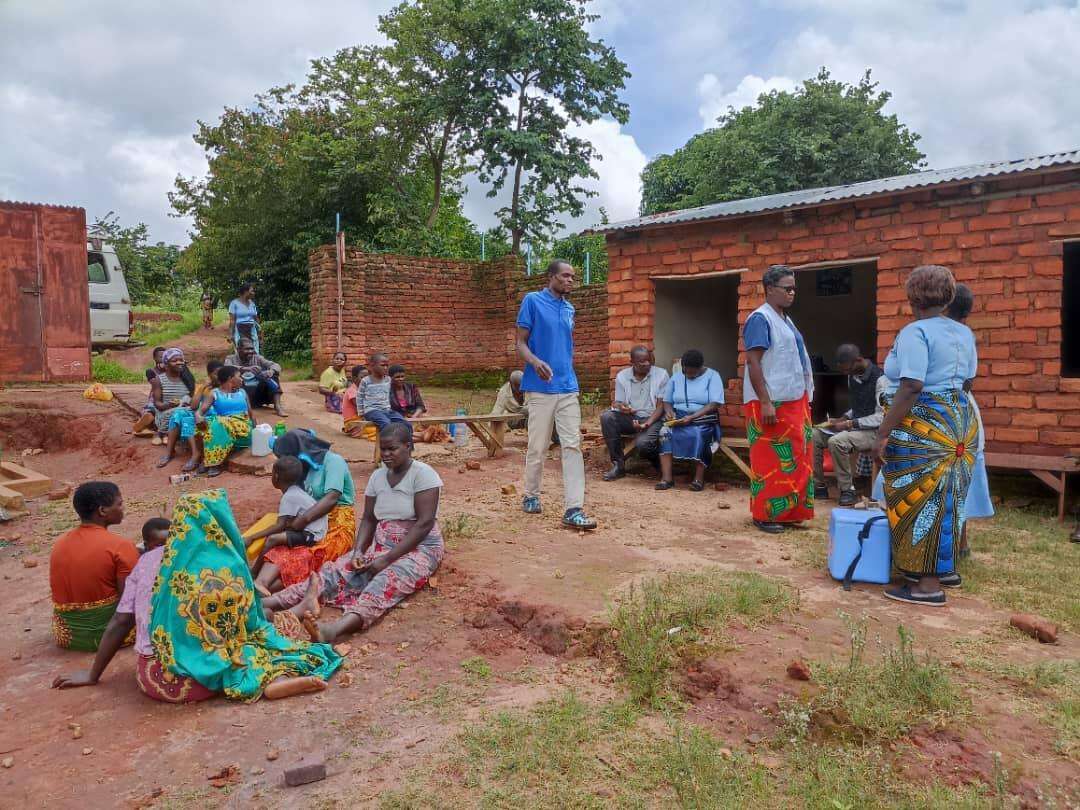NEW YORK/BLANTYRE, MARCH 14, 2023—The international medical humanitarian organization Doctors Without Borders/Médecins Sans Frontières (MSF) has put together a team of staff to provide medical and logistical support in response to Cyclone Freddy, which hit the southern region of Malawi on March 12. Heavy rains and strong winds resulted in the deaths of hundreds of people and caused damage to infrastructure like roads, buildings, and electricity lines.
“The situation is very dire,” said Guilherme Botelho, MSF emergency project coordinator in Blantyre. “There are many casualties—either wounded, missing, or dead—and the numbers will only increase in the coming days.”
According to Malawi’s Department of Disaster Management Affairs today, Blantyre district has recorded the highest number of deaths. In that district, Queen Elizabeth Central Hospital—which MSF is supporting—has reported 220 casualties, including 42 adults and 43 children who were pronounced dead on arrival, overwhelming the facility. In addition to supporting Queen Elizabeth Central Hospital with staff, MSF is also donating medical supplies and will assess if food also needs to be provided to patients.
“We have redirected some of our staff from our regular project for cervical cancer to assist the MSF emergency team at the Queen Elizabeth Central Hospital,” said Marion Pechayre, MSF head of mission in Malawi. “We have also suspended outreach activities to protect our staff from any risks linked to flash floods and landslides during movements or building collapses.”
The threat of a resurgence of cholera remains a major concern as Malawi recently suffered the biggest outbreak the country has seen in its history, which was spurred by tropical storm Ana last year since cholera spreads rapidly through contaminated water. Malawi remains the most cholera-affected country in Africa.
“We have moved the cholera treatment centers closer to the hospital to ensure the safety of the patients,” Botelho said. “The rain hasn’t stopped yet and there is a lot of damage, which really worries us on many levels. Another rise in cholera cases is one of our concerns in the aftermath of this storm, especially since the vaccine coverage in Blantyre is very poor. But for now it is too early to tell.”
One reason cholera has been able to spread so widely in Malawi is because of a global shortage of vaccines. Gavi—which was set up to pay for vaccines for the world's poorest countries—is the main funder of cholera vaccines in low- and middle-income countries where most cholera outbreaks occur. However, despite forecasting that supply would be tight, the publicly funded institution failed to invest in additional manufacturing. As a result, only one supplier that has been prequalified by the World Health Organization is currently making cholera vaccines.
MSF emergency teams will continue to assess the situation and needs of the population and health facilities in the most affected southern districts of Malawi to provide support through medical treatment and access to clean water and sanitation, which can help prevent the spread of cholera.
Cyclone Freddy is the longest-lasting tropical cyclone on record and has also hit Madagascar and Mozambique with extreme winds and significant flooding. Madagascar remains one of the countries most at risk of climate change. It is severely affected by extreme weather events, in particular, which have fueled alarming malnutrition levels in areas where people have lost their harvest, food stocks, and source of income.
Malawi: MSF responds to medical needs following Cyclone Freddy
MSF is concerned about reemergence of cholera following storm as Malawi remains the most cholera-affected country in Africa

